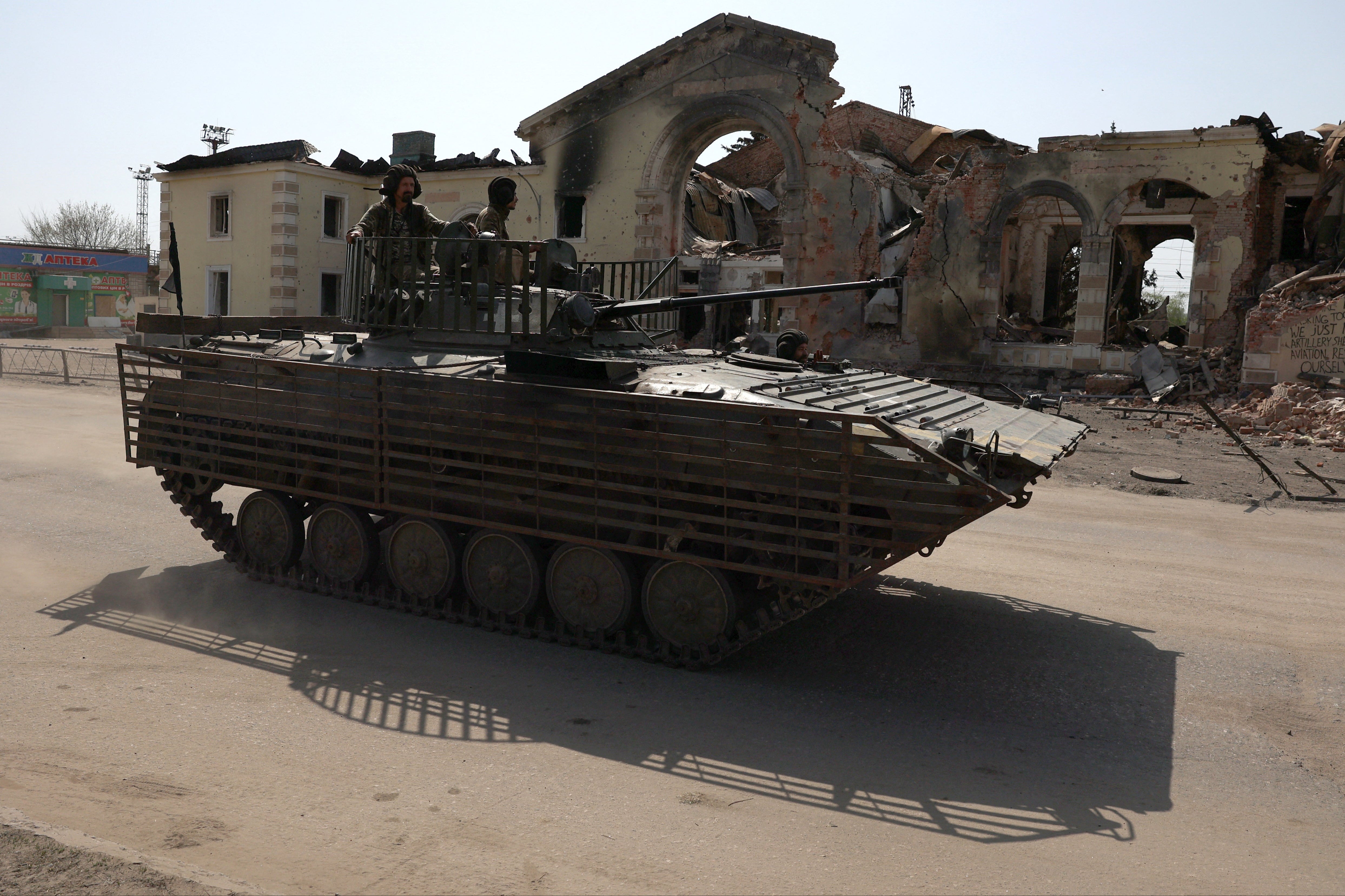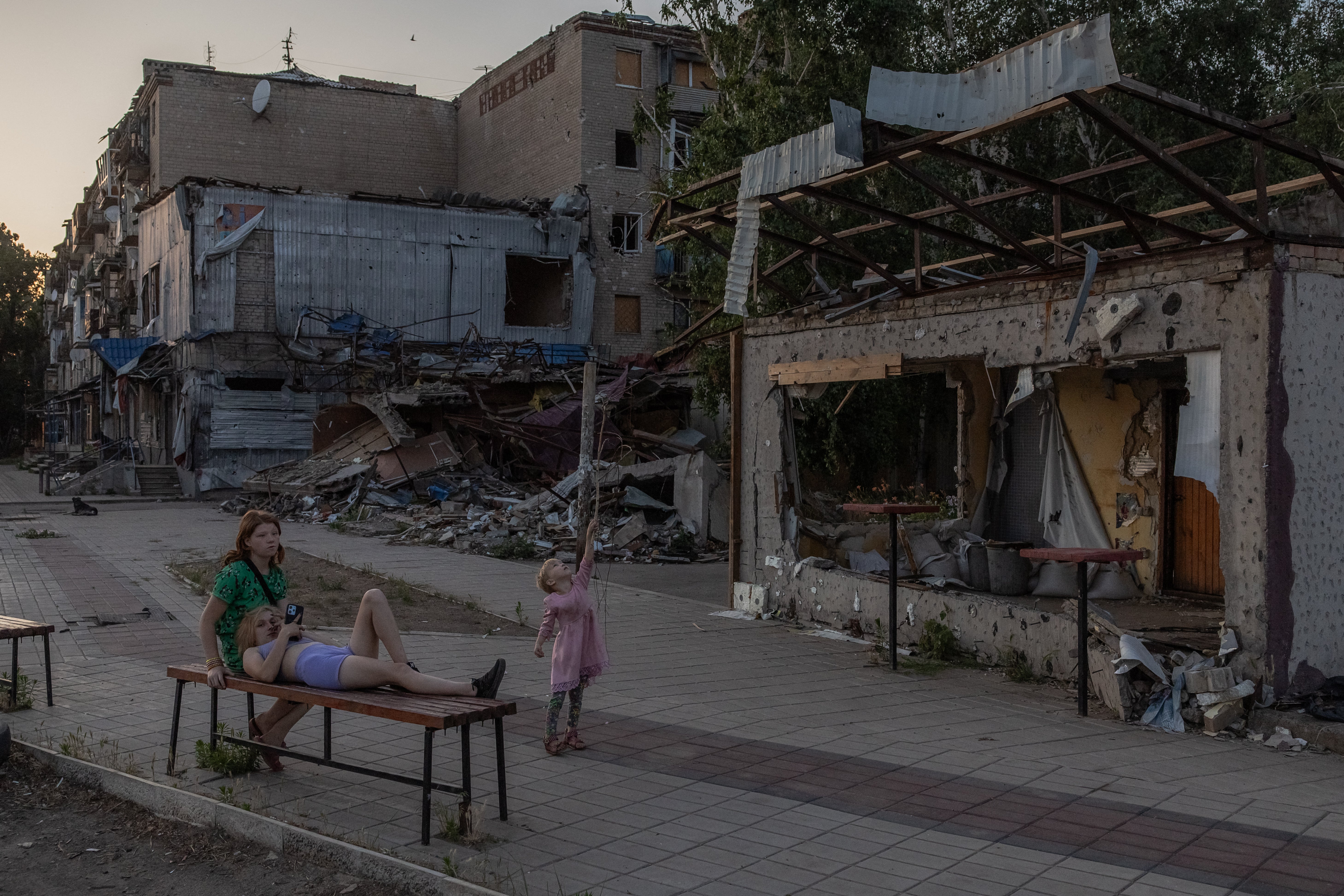It feels like the Ukraine invasion has made the Russian invasion more ferocious
Residents of Kostyantynivka, which is perilously close to the front lines, tell Askold Krushelnycky about the relentless shelling they are facing as Russian troops advance on one of the few towns in the region still in Ukrainian hands

The city of Kostyantynivka in Ukraine’s eastern Donetsk has become one of the main targets of relentless Russian attacks to capture the remaining strongholds held by Kyiv’s troops in the region. Explosions are almost ever-present in and around the city, whether direct shelling attacks, or the sound of artillery batteries firing hundreds of rounds on the front line, reinforcing the sense that something catastrophic is approaching.
Kostyantynivka is one of the few remaining towns of any size still in Ukrainian hands in the region. And it is now perilously close to the front lines. Outgoing Ukrainian fire could also be heard south of the city with a distinctive rapid whoosh-whoosh-whoosh signifying, says one civilian, one of the highly accurate US-provided multiple rocket launchers at work.
Russian attacks are being ramped up across the area – from the commanding heights of Chasiv Yar, less than 10 miles to the northeast, to the mining town of Toretsk, whose slag heaps can be seen eight miles to the south, and Pokrovsk – the key target for Moscow at the moment – some 33 miles to the southwest along a route already vulnerable to shelling by the approaching Russians.
A local businessman, Petro, says: “Our city has been a target for the Russians since 2014, but they have been hitting us hard, smashing away at Kostyantynivka since the start of the full-blown invasion in 2022. There has been an increase in their attacks since August and perhaps the Ukrainian invasion into Russia has made [the Russian troops] more ferocious and so they’re firing more. That’s how it feels.”
A chief aim of the Ukrainian incursion into Russia’s Kursk region, which began on 6 August, has been to try to force the Kremlin to redeploy some of its troops from Ukraine’s Donetsk region to relieve Kyiv’s desperately hard-pressed forces there.

Though some experienced Russian units have been transferred to challenge the Ukrainians that have taken some 500 square miles of territory in Kursk, not enough have left to prevent Moscow’s forces slowly but unstoppably advancing, sometimes just a few yards and at the cost of hundreds of Russian lives daily.
Petro, 39, says that several civilians are killed in Kostyantynivka each week and listed some of the more hideous moments over the last few weeks, which included 14 people killed when a missile hit a supermarket and at least 17 dead and 30 injured after another exploded in a fireball in an open-air market.
He says: “I have watched as the Russian attacks have developed over the years... They must like hitting that open-air market because around a year ago they killed 15 people there with a missile and they hit near there yesterday. Nobody died but four women were injured. So if they say it’s a mistake and they don’t mean to kill civilians, it’s a lie. They deliberately cause terror and if they can’t make us surrender our city they will try to destroy it, like the many towns and villages they claim ‘victory’ over.”
There is a 16-hour curfew from 5pm so that shops close early and the pavements are almost deserted. The road traffic is overwhelmingly that of various types of Ukrainian military vehicles speeding along the main thoroughfares.
The morning after The Independent arrived in Kostyantynivka there was a barrage of Russian artillery and missiles which damaged three apartment blocks and a shop and wounded one civilian. The next day, Russian attacks killed one and wounded another seven in a burst of shelling.

A woman pensioner, Alla, whose apartment windows were shattered by one of the blasts, says: “It’s very frightening. Previously it seemed more peaceful but now they [the Russians] are battering us each day. Somehow we live on.”
Ukrainian authorities have now said that families with children and elderly people should leave. Cars, with roofs often piled precariously high with suitcases, cardboard boxes, mattresses, TVs, drive mostly northwards out of the city on the first parts of circuitous journeys to safety. Free seating is being provided on trains for refugees quitting their homes.
But Alla says: “Where am I supposed to go? To leave you have to have money. I get some humanitarian food aid like flour and pasta. But the shops are not working full days any more.”
Given the strikes on the open-air market and supermarkets, residents are wary of going shopping except when necessary. A woman employee at a food shop near Kostyantynivka’s centre says: “We only work two hours a day because customers are too afraid to leave their homes. They come here hurriedly, buy what they need and rush out.”
Petro has faith in the Ukrainian troops defending the area, and says he will support them even if forced to evacuate. “I hope that our Ukrainian forces will still be able to turn things around and defend Kostyantynivka to prevent the Russians taking it. But the situation keeps getting worse and I will soon have to decide whether to evacuate my wife and two children somewhere far from the frontlines,” he says. “I have lived here most of my life and I will return to try to assist the army and the authorities.”






Join our commenting forum
Join thought-provoking conversations, follow other Independent readers and see their replies
Comments